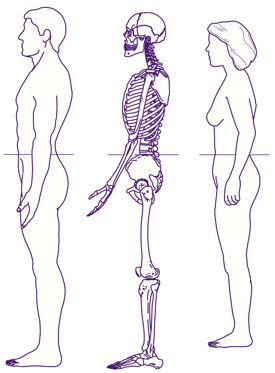Gastroenterologists face consequences of obesity epidemic
Obesity seemed to be the topic on everyone's lips at the annual scientific meeting of the American College of Gastroenterology in October.
PHILADELPHIA—Obesity seemed to be the topic on everyone's lips at the annual scientific meeting of the American College of Gastroenterology in October. Researchers, lecturers and attendees at the Philadelphia meeting discussed the effects of America's rising obesity rates, as well as the benefits and risks of obesity treatments.
Among the most talked-about research presented at the conference was a new study finding obesity to be the greatest risk factor for colorectal cancer in women. The researchers collected data on 2,695 patients who received screening colonoscopies and classified the patients by age, smoking history, family history and body-mass index (BMI).
While men overall had a higher risk for significant neoplasia, only in women did a BMI of 30 or higher significantly relate to cancer risk, according to the study's findings. “Of that group [of women] that had significant pathology in the colon, one in five [was] obese,” said study author Joseph C. Anderson, MD. By comparison, only 14% of the women who were found to have colorectal neoplasia were smokers.

Assuming further studies confirm the association between obesity and colorectal cancer, physicians may want to consider screening obese women at younger ages and with greater frequency, according to Dr. Anderson. “Obesity is a risk. Just like you look at age and family history, you also need to look at BMI as well,” he said.
Both currently and formerly obese patients need to be watched carefully for a variety of potential gastrointestinal (GI) problems, said outgoing ACG president David A. Johnson, FACP, in a conference session on GI complications of bariatric surgery.
“You need to think about potential incremental risks and screening risk in particular in these patients even after they've had their surgeries because we don't know yet if these things are truly reversible,” he said.
While bariatric surgery lowers patients' risk for some obesity-related conditions, it definitely increases their chances of developing vitamin and element deficiencies, Dr. Johnson noted.
Iron and B12 deficiencies are common in post-gastric bypass patients, as well as deficiencies of calcium, thiamin, vitamin D, and fat-soluble vitamins such as A and E. Shortages of trace elements are rarer, but can have serious neuropathic consequences, said Dr. Johnson.
Two studies presented at the conference highlighted a potential explanation for gastric bypass patients' nutrient deficiencies. Researchers at Washington (D.C.) Hospital Center conducted a retrospective chart review of patients who underwent Roux-en-Y gastric bypass surgery between 1999 and 2005. The studies looked at calcium and zinc deficiencies in the patients and found both problems to be associated with small intestinal bacterial overgrowth (SIBO).
“The concern is that even if you provide patients with supplements after the surgery, the supplements may not be properly absorbed if this type of bacterial overgrowth is present in the small intestine,” said study author Timothy Koch, MD.
SIBO can be treated with antibiotics, Dr. Koch noted, but patients risk complications if their nutrient deficiencies and the underlying overgrowth remain undiagnosed for significant time.
“In many cases, the surgeon will follow the patients for only two or three years. The number one issue is that two or three years of follow-up [are] not long enough. We really should be watching them closely for the duration of their lives,” said Dr. Koch.
Because many patients receive limited follow up, other internists, as well as gastroenterologists, need to be aware of the potential complications of bariatric surgery. “Primary care may be the ultimate care providers,” said Dr. Johnson.
As the U.S. population becomes more obese, and bariatric surgery becomes a more popular treatment, this patient group is only going to grow in number, he said. “In 2007, we're going to see nearly 100,000 bariatric interventions. It means we're going to see a lot more of these people coming back with GI manifestations and complications.”



